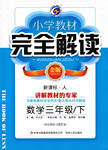English is an important global language, but that doesn’t mean it’s easy to learn. Many experts have tried to make English easier for students to learn―but they weren’t always successful.
In 1930, Professor CK Ogden of Cambridge University invented Basic English. It had only 850 words (and just eighteen verbs) and Ogden said most people could learn it in just thirty hours. The problem was that people who learned Basic English could write and say simple messages, but they couldn’t understand the answers in “real” English! It was also impossible to explain a word if it wasn’t in the Basic English word list. For example, if you wanted a watermelon, you asked for “a large green fruit with the form of an egg, which has a sweet red inside and a good taste”!
RE Zachrisson, a university professor in Sweden, decided that the biggest problem for learners of English was spelling, so he invented a language called Anglic. Anglic was similar to English, but with much simpler spelling. “Father” became “faadher”, “new” became “nue’ and “years” became “yeerz”. Unfortunately for some students of English, Anglic never became popular.
Even easier is the language which ships’ captains use: it’s called “Seaspeak”. Seaspeak uses a few simple phrases for every possible situation. In Seaspeak, for example, you don’t say, “I’m sorry what did you say?” or “I didn’t understand, can you repeat that?” It’s just “Say again.” No more grammar!
In the age of international communication through the Internet who knows? ... a new form of English might appear. A large number of the world’s e-mails are in English and include examples of “NetLingo” like OIC (Oh, I see) and TTYL (Talk to you later). In another fifty years, English might not exist ... we will probably all speak fluent Internetish!
小题1:The best title for the passage would be ______.
| A.Seaspeak | B.Basic English |
| C.Internetish | D.Easy English |
小题2:It will take a person about ______ weeks to learn Basic English if he spends two hours
learning it every day.
小题3:According to Professor Zachrisson, what was the biggest problem for learners of English?
| A.Grammar. | B.Vocabulary. |
| C.Speaking. | D.Spelling. |
小题4:Which of the following is likely to be Anglic?
| A.IOU | B.A graet batl. |
| C.Long time no see. | D.Two five, no lights. |
小题5:What might happen to English in another fifty years?
| A.It might be replaced by Internetish. |
| B.It might become a global language. |
| C.It might take the place of all other languages. |
| D.It might become more and more difficult. |



 小学教材完全解读系列答案
小学教材完全解读系列答案